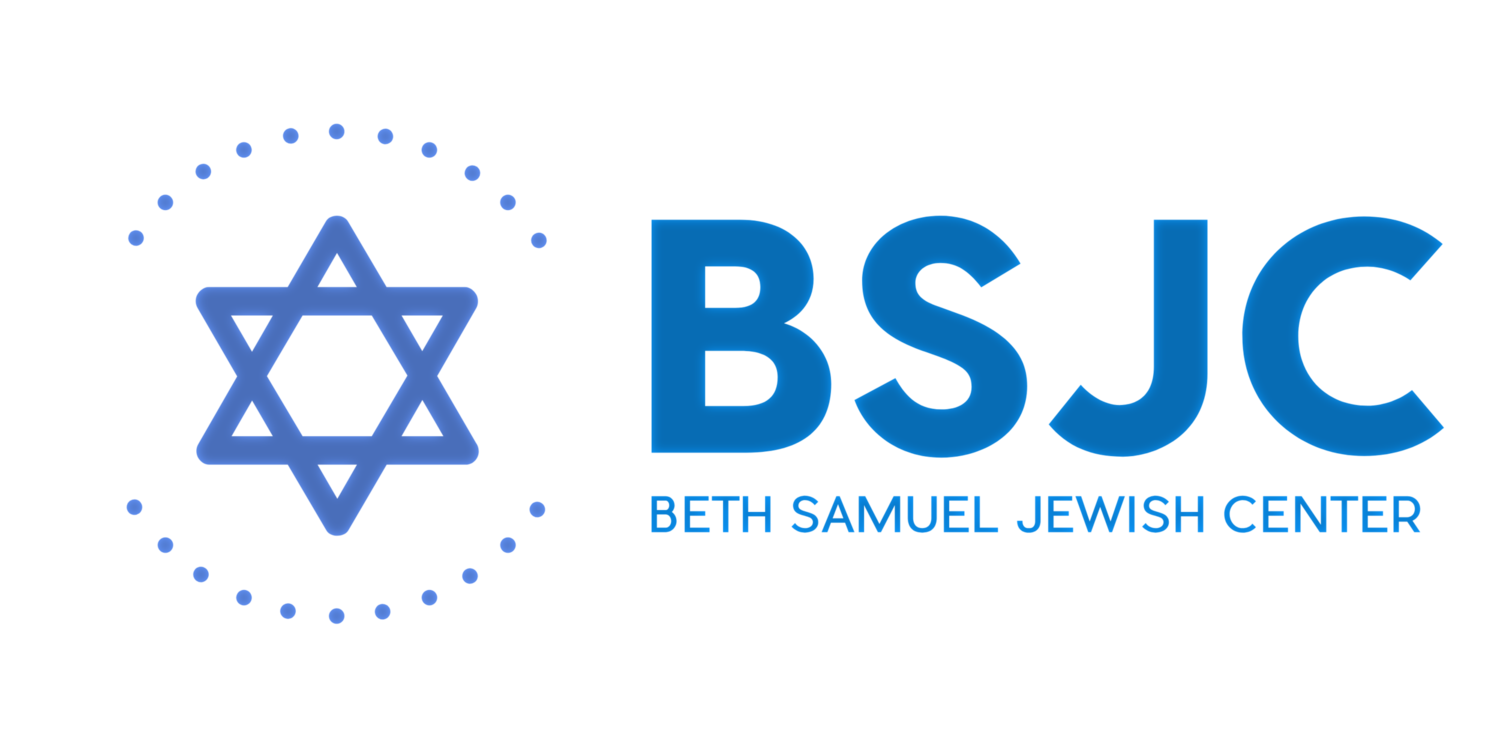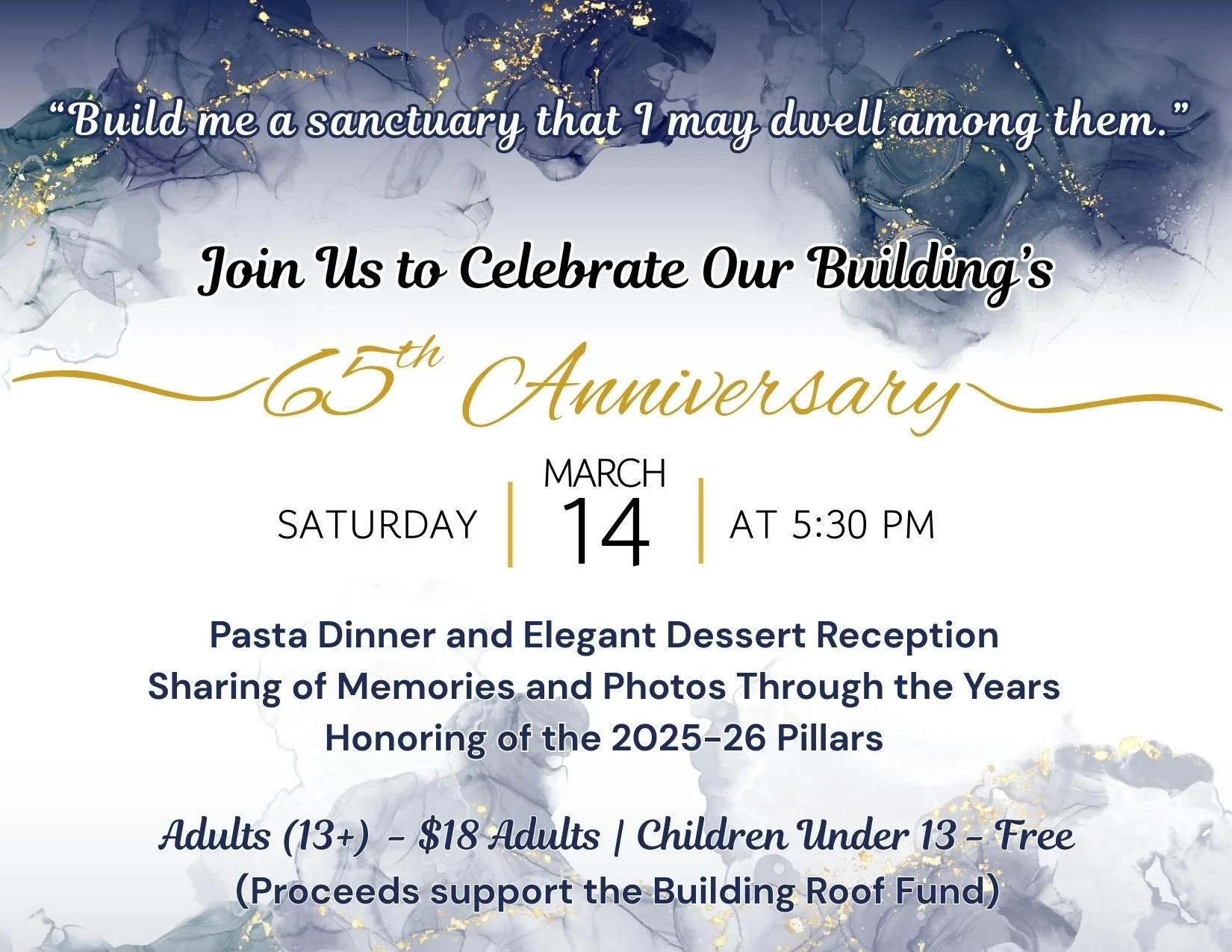Shabbat Shalom.
It’s been a year. It’s been a decade. It’s been a lifetime and more for those of us who identify ourselves as Jews.
Anyone who’s paid attention to our peoples’ history knows that being Jewish isn’t easy, especially since we constitute maybe 2% of the world’s population. Threats of ostracism, discrimination in housing and employment, even violence, have been part of the package from the start.
Those of us born to Jewish parents and raised with even a modicum of Jewish identity know this.
We know it because our parents chose to raise us in close proximity to other Jews, to join a synagogue, and to celebrate the round of festivals that make up the Jewish religious year. Even within that cocoon, we knew that we were different from the rest of the world. The cocoon was our safe place, our community, a place where we belonged even if we could not belong as fully anywhere else.
Or we know it because even though we were Jewish, our parents raised us outside the bosom of strong Jewish community, outside of Jewish neighborhoods or cities with a large Jewish population, outside of synagogue membership. If our parents gave it any thought, we celebrated maybe Passover and Chanukah, or nothing Jewish at all. Our parents couldn’t afford the price of admission to the cocoon — or they disdained it altogether for their own, other reasons — and so we lived as secular Americans, taught to love country, flag and freedom.
For those who grew up in the cocoon, there was safety, and belonging, and a sense of certainty about who we were and how we fit into the world. For those who grew up secular but still vaguely Jewish, the sense of belonging was more elusive. We belonged as Americans but only as far as our last names or swarthy complexions could take us.
Sooner or later, Jews from both of these backgrounds would be challenged to consider our place in the larger society. And we would do the best we could. Those of us who belonged to the cocoon could scurry back to it whenever the rest of the world got too threatening. Those of us who grew up outside the cocoon would have to make do with what we had on hand, and survive.
In both cases, we paid a price.
Jews who grew up in the cocoon may have been safe, but they were also restricted by the template they and their community accepted. Even liberal Jews who still observed Passover and the High Holy Days would have to explain their absences from school and work, and although religious differences are protected by our Constitution, we were still outing ourselves as somehow “other” to the non-Jews around us.
Jews who grew up outside the cocoon perhaps “passed” more easily as Americans, but at the center of their lives was an empty place where there were nothing but questions about who they really were, and who their community really was. They lacked a sense of personal and communal ballast. Even if they did not out themselves to their non-Jewish friends, they could still feel the difference within, at Christmas and Easter, or in prayer huddles in team sports, or in classrooms of the 1950s through 90s where the Pledge of Allegiance was followed by recitation of The Lord’s Prayer.
No matter what kind of Jews we were growing up, we were — and still are — reminded of our difference in a thousand ways large and small every time we turned around.
When you grow up being even a little bit different, it colors how you move through the world and how you see yourself in it.
Now imagine that you grow up in some other community, some other tradition — whether religious or secular — and you discover Judaism for the first time. It piques your curiosity and you decide to learn a little more about it. This might happen through a Jewish friend, or because you’re dating a Jew and your relationship becomes quite serious, or because you work up the guts to call a synagogue and ask to speak with the rabbi. But that curiosity is all it takes. You dive in, and are astounded by the breadth and depth of Jewish history. You learn about the idea of personal responsibility to maintain personal ethics, and the prophetic tradition of repairing your corner of the world. You fall in love with the warmth and sweetness of the seasons and festivals of the Jewish year. You are drawn to the notion that a single soul represents an entire universe, and to the idea that no effort to make something better is too small to matter.
There is, of course, a risk involved in taking the step to learn more.
If anyone you know and love finds out that you’re reading books about Judaism, studying with a rabbi, or taking a class, they’ll wonder what’s going on. And their reactions will be all over the map. That’s an experience that those of us born into Judaism will never have.
At some point, these three people — the Jewishly connected, the Jew who stands outside the community, and the non-Jew who wants to discover what Judaism is, may meet up somewhere — at a synagogue or Jewish community center, or at a public celebration (like a Menorah lighting, perhaps) and for their own individual reasons they will find that they like what they’ve found there. And they want more.
For the Jew who grew up connected to Jewish community, they may have strayed a bit from it, perhaps in college or some other part of adulthood. They don’t think about it for awhile — the larger world is filled with all sorts of things to learn, see and try. Then they fall in love with THE one, and they have to consider how they will share their lives going forward. Or maybe it doesn’t kick in until they have a child of their own. Suddenly they realize that they can give their child the beauty and sense of self they grew up with, and they come back to Jewish life and re-ground in it. With the re-grounding may come a new, more mature appreciation of their heritage and community, and a gratitude that they can give this to their child.
For the secular Jew, the communally disconnected Jew, the inspiration for digging deeper into their tradition may be sparked by anything: marrying another Jew — it happens — or losing a parent; and realizing they lack a template that will help them live more thoughtfully and deliberately. So they go back to their family’s origins, and origin stories, and they sift through what they find and they decide to cast their lot with their fellow Jews. Theirs is a steep learning curve, because they first have to learn what they missed out on, and then figure out how to integrate it into the people they are now. This can take time, patience and many reminders to be gentle with oneself along the way.
For the person who discovers Judaism, learns about it and likes what they find enough to want to stay, there is a conversion process, another different, and equally steep learning curve, plus the added challenge in navigating the outcomes of their decision with their non-Jewish family and friends. This also takes time and patience, and self-kindness.
For the first Jew, the re-entry Jew, it’s maybe a little easier. After all, they knew what they had walked away from and are now returning to it. They can — and often do — become a source of grounding and stability for themselves and for their children’s generation.
For the secular Jew, there may always be an element of not believing they fully belong. After all, they lack some personal history — whether it’s Jewish summer camp or any other form of “Jewish geography” — that they know all too well they will never possess. They will struggle with that lack of history throughout their lives and each will have to make their peace with it as best they can. These Jews have had to go very far out of their way to come back a short distance to where they want to be. We all can learn a lot about compassion and empathy from these Jews, who may have wandered farther and longer than anyone to find their way to our community.
For the person who has deliberately chosen to come into Jewish life from somewhere else, to convert to Judaism, they will have the benefit of a lot of learning that’s essentially been handed to them, and these Jews often come into Jewish community quite learned and excited about “doing Jewish.” Their energy and enthusiasm can add vibrant energy to an existing Jewish community, and can remind the rest of us just how much there is to celebrate and to cherish about being who we are.
In every case, each of these different kinds of Jews has chosen Judaism, has made a conscious decision to engage with life using a Jewish template, and Jewish communities are strengthened and elevated by all three. Further, all kinds of Jews can be reminded by these different paths that they cannot and must not take their Judaism for granted. Done mindfully, Judaism can be a gift that keeps giving through good times and hard.
So if someone new comes into your community and makes it clear that they like what they’ve found there and want to stay, gently welcome them in. Invite them for Shabbat dinner. Ask if they’d like to grab a cup of coffee with you. If they seem a little nervous — and some of them might be — reassure them that you’re glad they’ve joined you here.
Jewish life cannot be a solo act. And it shouldn’t be. The key is to remember that, when we engage with Judaism intentionally and build community together, we are all Jews by choice. In the end, choosing Judaism and “doing Jewish” in whatever ways we can — together — is what sweetens our lives and sustains us.
Shabbat Shalom
Beth Hamon



